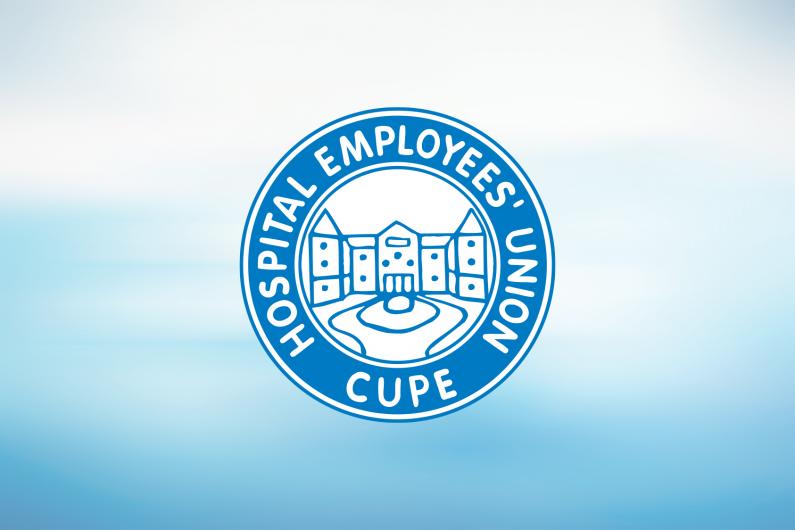
Members of the nine-union Facilities Bargaining Association (FBA) have ratified a new three-year collective agreement with B.C.’s health employers by a vote of 64 per cent.
The three-year agreement is retroactive to April 1, 2022 and covers more than 60,000 workers in hospitals, care homes, logistics and supply facilities and other settings within the health care system.
The agreement includes a significant compensation package including general wage increases and cost of living adjustments (COLA), new and improved premiums and allowances, and additional resources to address the impact of historic wage cuts on pay equity.
There are also provisions to address serious staffing shortages and turnover in the sector including a commitment to add an additional 9.25 million hours of staffing which will add thousands of new regularized positions to the bargaining unit by 2024.
Additional measures include more access to training and education, improvements to safety in the workplace, and important new language to foster greater inclusion and diversity in the workplace, including concrete measures to support Indigenous workers.
Hospital Employees’ Union (HEU) secretary-business manager Meena Brisard, the chief spokesperson for the FBA, says the agreement helps protect health care workers’ wages against rising costs and address a serious staffing shortage that has been compounded by the COVID-19 pandemic.
“The provisions in this agreement include important tools to tackle workload burnout and the economic insecurity health care workers are experiencing in the face of rising costs,” says Brisard.
“But the vote results should also signal to government and health employers that these and other measures need to be implemented quickly. Workers on the front lines of health care are exhausted and they need resources and support if we are to have a sustainable health care system going forward.”
In terms of general wage increases and COLA, Year One will see hourly wages increased by 25 cents and then by 3.24 percent. For the majority of workers covered by the agreement that equates to a minimum combined increase of 4.24 per cent.
In Year Two of the agreement, wages will increase a minimum of 5.5 per cent and by as much as 6.75 per cent based on the COLA formula. In Year Three, wages will increase by a minimum of two per cent and by as much as three per cent depending on the COLA.
Negotiations began with the government’s bargaining agent, the Health Employers Association of B.C. (HEABC) last February and the agreement was reached on September 1 after 65 days of talks.
The bargaining unit includes care aides, health records staff, lab and other diagnostic specialists, sterile supply techs, renal technicians, nursing unit assistants, trades and maintenance workers, activity aides and rehab assistants, IT specialists, pharmacy techs, admitting and booking clerks, administrative staff, cleaning and dietary staff, and many others.
HEU represents more than 90 per cent of the workers covered by the agreement. HEABC members must also ratify the agreement.